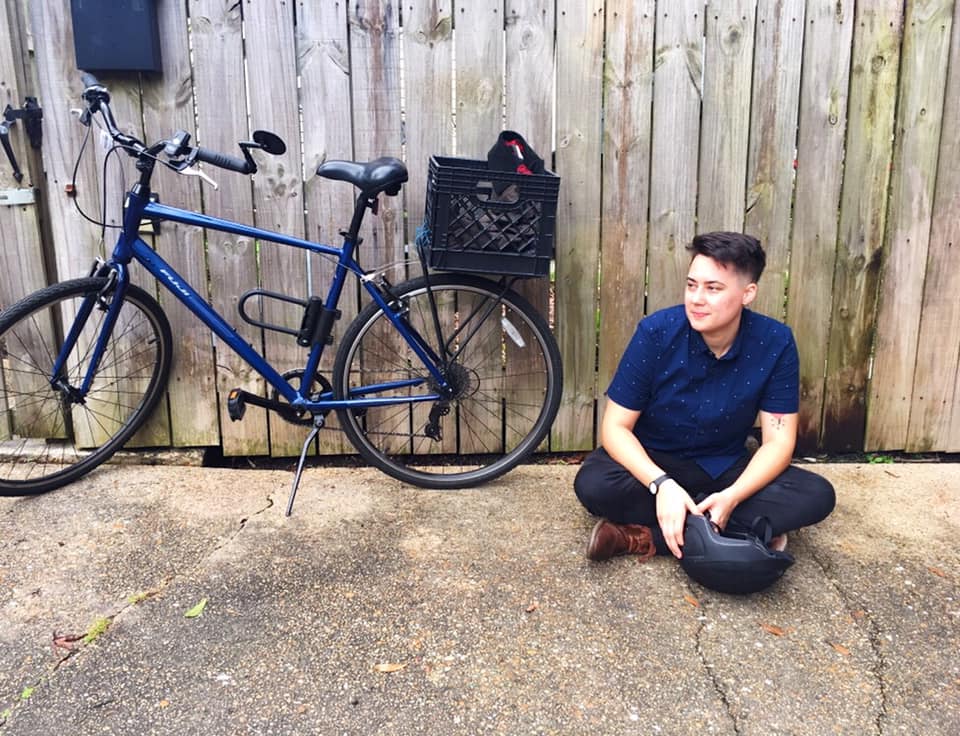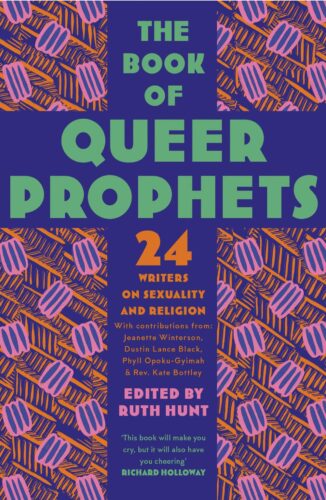Sometimes when I’m anxious at the doctor’s office, I count the ceiling tiles. Or the number of planks on a hardwood floor or the number of chairs in the waiting room. I don’t remember when I started doing this, but as soon as I think of counting at the doctor’s office, I can visualize many specific and distinct locations. But the strongest memory that comes up for me is my 2020 visit to an endocrinologist’s office.
That waiting room is a very lonely place. Everyone is alone, we’re all wearing masks and sitting six feet apart, scared of each other. The endocrinologist will decide whether or not I can begin weekly testosterone injections, the beginning my gender transition. I am doing this alone, and not only because of pandemic-era rules.
When I came out as transgender, I lost the support of my immediate family and many of the Catholics I knew.
Growing up, I had tons of support from a strong Catholic community. When I moved to a new area after college, my dad suggested I should ask people from church for recommendations about the typical local services (e.g., a good car mechanic). In following this advice, I ended up in a bit of a bubble—one that burst when those same Catholics found out I was transitioning.
When I came out as transgender, I lost the support of my immediate family and many Catholics I knew.
Besides getting a good recommendation for a mechanic, my former church community was so much more to me. It was my entire social, professional and spiritual life, all rolled into one. Looking back, it seems obvious that this was a recipe for disaster (like putting all your eggs in one basket). It created an insular echo chamber where the opportunity to hear from more diverse perspectives just wasn’t present. The most diverse experience I had while involved in this community was visiting all the local Christian churches. Not the mosques or synagogues, but other Christian churches.
I also had real, meaningful and important friendships with the people from my church community, good people who wanted to make the world a better place. I was passionate about connecting my social life, career and faith journey together as a Catholic with a capital C. It was an identity marker for me, an official label.
But that’s also where problems started to arise. Who is allowed to call themselves Catholic? The Catholics in my church community said, “not a transgender person, there’s no such thing as a transgender person” to my face. They looked past the Catholic standing in front of them and only saw a word incompatible with their official label.
Suddenly, all those good people directed their passionate fervor into finding reasons why I could not be included in the church community we both loved, why I could not be a transgender Catholic. It was heartbreaking. I was alone, without my immediate family, in the next stage of my life. This was a stage of transitioning and building a new faith community, one that would affirm, respect and support me in full.
I also had real, meaningful and important friendships with the people from my church community, good people who wanted to make the world a better place.
At this point, I would be wealthy if I got a check every time I had to go through a significant life event alone. In fact, I’ve been alone for so many significant events in my life that my present self can now take comfort in knowing that at least someone else gets it: past me.
And yes, I have dealt with my fair share of the loneliness and depression that comes with this type of rejection, like a lone horse in a small pasture with nowhere to stretch his legs. The pain of this experience has been almost indescribable, not just the loneliness itself but knowing that so many people I loved and spent formative years of my life with did not want to see me happy. They did not care to see me thriving, fully embodied and still fully seeking God.
When you are starting your gender transition alone, with whom can you celebrate? Who can support you? So many LGBTQ people have been homeless and hungry, squeezed so tightly by financial strain that they don’t make it. They’ve been cut off from any generational safety net for daring to be trans or gay. They’ve felt the consequences of missed life opportunities, failure to pay rent and rejection in the workplace. They’ve fallen through the cracks and been rendered invisible to most onlookers.
I didn’t suffer the extreme end of those consequences because I’m a white, straight-passing masculine person with financial independence. Yet, I suffered the emotional pain all the same. A cut on your hand may appear to be healed with no visible scar, but may remain tender for many weeks. Invisible wounds always take the longest to heal.
I not only survived the losses and anxieties of 2020, but began to really thrive as a transgender man.
And I did heal. On the rare occasions I heard from my former community, they invariably let me know they were praying for me. At the time, this felt like an unwelcome reminder that they disapproved so strongly of my identity they had no recourse but to pray about it. It was as if they were saying “God, you need to fix this crazy sinner.” That was hard to bear: The idea that they had cast me very firmly in a negative role in their salvation narrative.
But as I healed, as I grew and as my transition progressed, I not only survived the losses and anxieties of 2020, but began to really thrive as a transgender man. I realized that “all things work for good for those who love God,” (Rom. 8:28), and saw that even prayers from people who were no longer willing to support me could be part of my healing journey.
It’s easy to imagine how different (and better) the early years of my transition would have been if my church community and family had stood by me. But I made it through those difficult years and learned so much about myself to now live a beautiful life in the present. I met the people who formed my current, affirming faith community. I leaned on members of my extended family, who welcomed with open arms the changes to my name and pronouns. They knew they were welcoming the person I had always been. And now, I am living out the fullness of the person who God created me to be.



